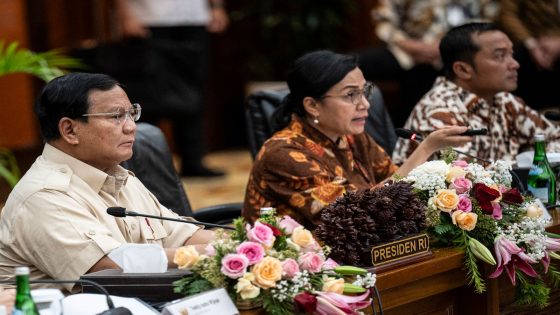The Indonesian government’s budget for the free nutritious meal program is facing a significant shortfall. As of January 19, 2025, the National Nutrition Agency’s head, Dadan Hindayana, has warned that the allocated funds will not last until the end of 2025, urging an additional Rp 100 trillion to meet the needs of 82.9 million beneficiaries. How will this impact the nation’s health initiatives?
- Additional budget of Rp 100 trillion needed
- Current budget insufficient for 82.9 million recipients
- Cabinet expansion leads to increased budget requests
- Projected APBN 2025 deficit could reach Rp 800 trillion
- Challenges in implementing nutritious food program
- Tax revenue growth fails to meet targets
Indonesia’s Free Nutritious Meal Program Faces Budget Crisis
Is the Indonesian government prepared for the financial demands of its ambitious health program? With the current budget set at Rp 71 trillion, experts warn that it will only reach 17.5 million people by September 2025. The call for an additional Rp 100 trillion highlights the urgent need for sustainable funding.
Implications of Increased Budget Requests on Indonesia’s Economy
As various ministries, including those focused on food security and human rights, seek additional funding, the pressure on the national budget intensifies. The growing demands could push Indonesia’s fiscal deficit beyond the targeted 2.53% of GDP. What does this mean for the country’s economic future?
Potential Risks of a Growing Fiscal Deficit
The rising fiscal deficit poses several risks to Indonesia’s economy, including:
- Increased borrowing costs as investors seek higher yields.
- Potential cuts to essential services if budget reallocations are necessary.
- Strain on economic growth due to higher debt levels.
- Challenges in meeting international financial obligations.
Strategies for Sustainable Funding in Health Programs
To mitigate the budget crisis, Indonesia could explore various strategies, such as:
- Enhancing tax collection efficiency to boost revenues.
- Encouraging public-private partnerships for funding health initiatives.
- Prioritizing spending to focus on essential health services.
- Implementing cost-saving measures across government departments.
The Importance of Efficient Budget Management
Effective budget management is crucial for Indonesia to navigate its financial challenges. By prioritizing health initiatives and ensuring efficient allocation of resources, the government can work towards achieving its nutritional goals without compromising economic stability.
In conclusion, Indonesia’s free nutritious meal program is at a critical juncture. With rising demands for additional funding, the government must act swiftly to secure the necessary resources while maintaining economic balance. The health of millions depends on it.

































